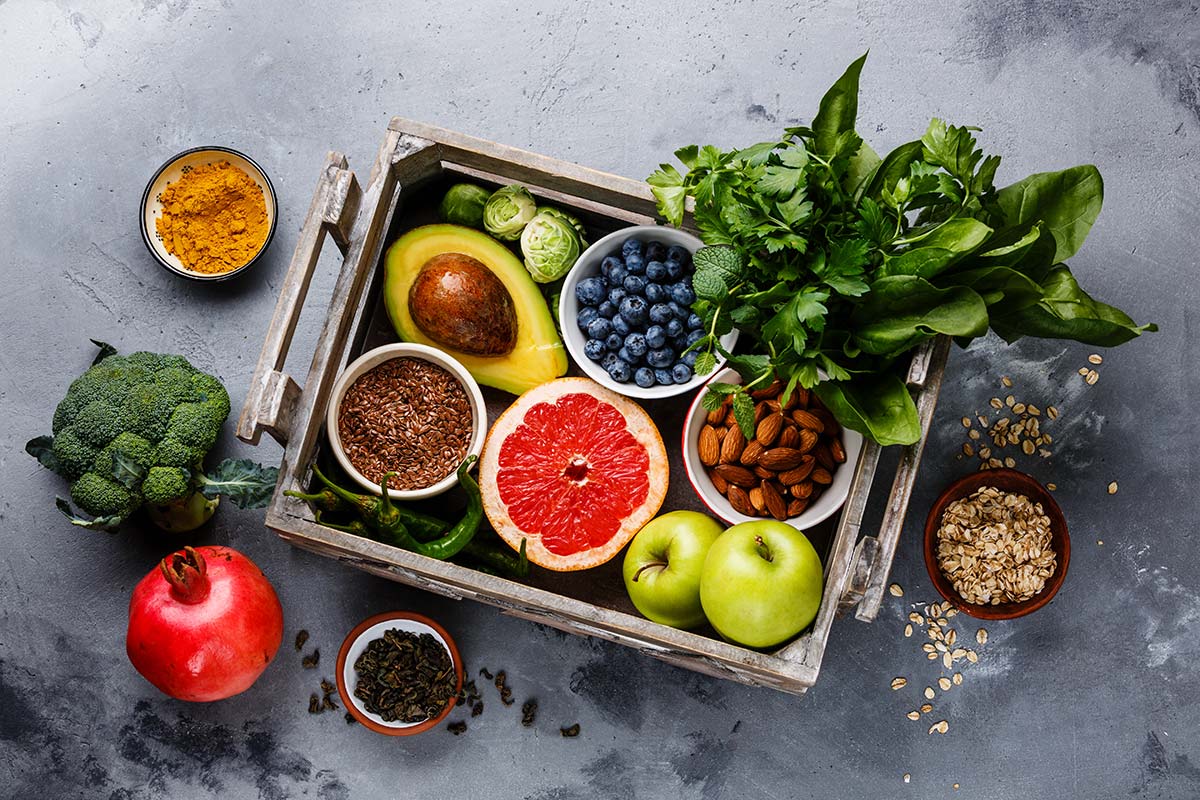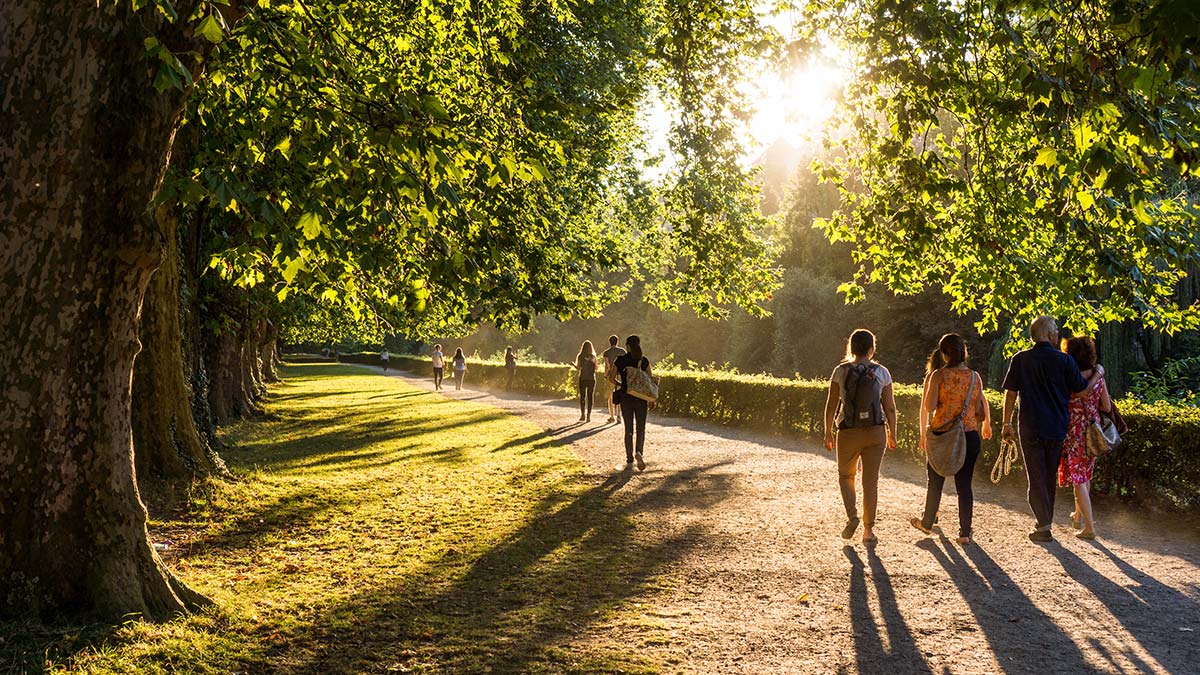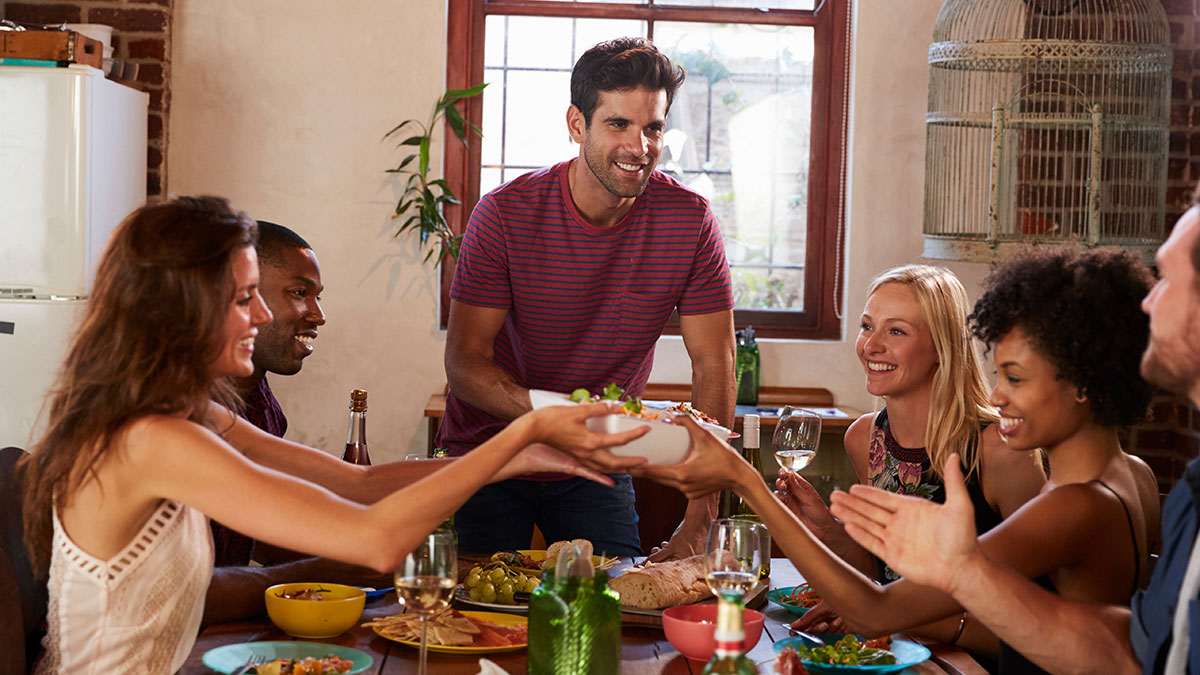Blue Zone Living: 5 Tiny Habits That Could Improve Your Longevity

Ever since National Geographic journalist Dan Buettner published his landmark research into Blue Zones – areas of the world where people live to record-setting ages – the secrets of these communities have been a source of fascination.
What makes them so special? Does diet and exercise play a role? And does having material wealth really make any difference to our health and happiness?
In answer to these questions and more, Buettner and his team developed a ‘Power Nine’ – nine commonalities he observed in the daily lives of people living in Blue Zone regions. These longevity hotspots, like Okinawa in Japan and the Barbagia region of Sardinia, boast the highest concentration of people who live to 100 of anywhere in the world.
The good news is that you don’t need to live a quiet life on the Mediterranean coast to reap the benefits. Here are a handful of accessible ways we can bring the Blue Zones’ life-extending lessons into our everyday routines.

Swap marathon training for fitness snacking
We all know that exercise is important for health, but the way you exercise could make a big difference to your chances of making it to the age of 100.
Famously, people in the Blue Zones don’t train intensely for marathons, pump iron for Hyrox events, or even have active gym memberships. Instead, they live in environments that naturally encourage regular movement every 20 minutes or so.
In Okinawa, for example, gardens are woven into the fabric of the community, and residents spend much of their day digging, weeding and watering their homegrown crops. Meanwhile, in the mountainous highlands of Sardinia, getting anywhere in this steep region is akin to walking on a permanent StairMaster.
Known as ‘exercise snacking’, this approach involves small bursts of exercise throughout the day, rather than slotting an intense gym session between hours of sitting at a desk. With more than a quarter of adults failing to meet government exercise recommendations, simply introducing short bouts of five-minute walking breaks into your day could make all the difference to your long-term health.
Find your ‘why?’
Having a purpose in life is associated with lots of benefits. According to findings from the Blue Zone project, knowing your sense of purpose could even add up to seven years to your life.
Across the board, purpose is a big part of the Blue Zone lifestyle. In fact, Okinawans even have a specific word for it: “Ikigai”, which translates to ‘reason for being’.
Finding your Ikigai isn’t about making tons of money or growing your Instagram following, but knowing that you’re using your skills to help others in a way that matters. Recognising your strengths and applying those to meaningful community work like mentoring or volunteering is just one way that you can feel like you’re making a difference in the world.
Downshift from 24/7 hustle culture
Hustle culture has become something of a pandemic in its own right. You only need to take a quick scroll through your LinkedIn feed to feel the creeping urgency that you should be working harder, smarter and more ruthlessly.
All that productivity can lead to a lot of stress, though, which, left unmanaged, can take a major toll on both your physical and emotional health. Recent Mental Health Foundation stats found that 51% of adults who feel stressed report feeling depressed, and 61% report feeling anxious.
While avoiding stress entirely is impossible, people in the Blue Zones can teach us a lot about cultivating a lifestyle that actively takes the slow lane. Midday naps are a huge part of Grecian culture, Sardinians spend their post-work hours drinking wine with friends and Okinawans go out of their way to pray and meditate.
While you likely can’t change your high-octane job culture overnight, there are smart ways to nix stress elsewhere. Maybe you don’t need to start a lucrative side hustle, run five different social media accounts, or feel guilty about spending a long weekend doing nothing.
Plate up more plants
People in the Blue Zones have one simple diet rule: make sure your food is 95 percent plant-based.
Recent peer-reviewed research backs this veg-loving theory up, with some studies linking plant-based diets to lower rates of heart disease, type 2 diabetes and even some cancers.
Longevity-boosting foods to prioritise on your next weekly shop could include leafy greens like spinach and kale, antioxidant-rich nuts, vitamin-packed berries and everyone’s favourite toast topper, avocado.
As most of their food is homegrown, the Blue Zone communities also eat with the seasons, plating up food that grows naturally where they live. You don’t have access to a garden or allotment to do the same. Simply learning what’s in season means you can purchase food from the supermarket that is fresher, tastier, and more nutritious as it hasn’t travelled so far.

Find your tribe
There’s a common Instagram platitude that goes ‘your vibe attracts your tribe’. While motivational internet phrases can often seem a little passé, there’s genuine wisdom behind this one.
Why? Because research from the Framingham Studies shows that lifestyle behaviours like smoking, obesity, positivity, and even loneliness are contagious, with habits good and bad having a ripple effect through communities.
In the Blue Zones, daily life is built around positive habits like healthy eating, movement, gratitude, prayer and kindness. Friendships run deeper than simply liking each other’s Instagram posts, and residents build supportive social networks around the habits they want to practise.
With loneliness increasing in the western world (and estimated to increase the risk of early death by 26%) it’s arguably never been more important to prioritise friends who share our values and interests. So while social media might give us the illusion of being better connected, getting offline and meeting friends in real life is the best thing we can do for our health.


















